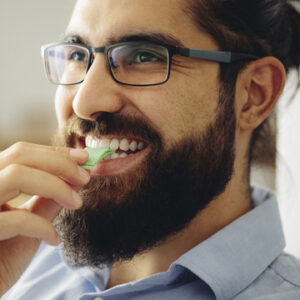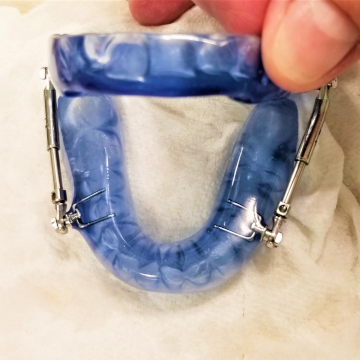 SANTA CRUZ, SCOTTS VALLEY CA
SANTA CRUZ, SCOTTS VALLEY CA
When we’re hit with the craving to indulge in something sweet, hardly anything is going to satisfy it like confections: chocolate, candy, cake and cookies … oh my! At the same time, nothing wreaks havoc on our teeth like sugar. Bacteria in our mouths literally live and thrive off sugar. Without proper oral hygiene practices to rid the mouth of sugars, the bacteria will become plaque then tartar, and now you have the perfect storm for tooth decay.
The answer, of course, isn’t to forevermore resist indulging in after-dinner dessert or a piece of birthday cake. Sweets can be enjoyed in moderation every once in a while, and steps can be taken to protect the teeth from cavities in the meantime.
But how to find the balance? Our family dentists in Santa Cruz have compiled the following list of tips to help you figure out how to satisfy your sweet tooth without compromising your oral health:
What candies are the worst for teeth?
Let’s start with what’s the least dangerous for the teeth: chocolate.
Chocolate — Now before you breathe a complete sigh of relief, let us explain: The chocolate that’s least harmful for dental health is dark chocolate because it contains less sugar than other types of chocolate. In general, any kind of chocolate tends to not stick to teeth like other kinds of candies.
Sticky, gooey treats and candies — It only makes sense: the stickier and gooier the candy, the harder it is to remove from the surface of the teeth. The longer the sugars from treats such as taffy, caramels, gumdrops, jelly beans and gummy bears are in contact with your teeth, the longer the bacteria in the mouth feed on those sugars, creating acids that will build plaque and tartar and lead to tooth decay.
Hard candies — Similar to sticky, gooey candies, hard candies like lollipops and peppermints take some time to consume, extending the amount of time the teeth are exposed to sugar. Hard candies have also been known to chip or break teeth when people bite down on the candy.
Sour candy — sorry, sour candy lovers, but this type of candy scores the worst for dental health. Sour candies are both acidic — which breaks down tooth enamel — and also sugary. In fact, many of the acidic sour treats are also coated in sugar! Double whammy!
Tips to safely satisfy your sweet tooth
It’s impractical to think someone can or would avoid sugary snacks and treats altogether. So how do you protect your teeth when deciding to indulge? Our Scotts Valley dentists share the following recommendations:
Drink or rinse with water
After enjoying candy or other sweet treats or confections, drink or rinse with water. Just a few swishes of water can help dilute any acid from candy and will also help rinse away the sugar on the surface of the teeth.
Eat sweets after meals
Saliva helps neutralize acids and wash away food particles, sugar and debris in the mouth. Since saliva production is at its highest during meals, it’s preferable to eat a dessert or sweet treat during meals than snacking on them randomly throughout the day.
Chew gum
It may seem counterintuitive, but hear us out: chewing sugar-free gum — especially one that uses xylitol as a sugar substitute — also helps with salvia production and reducing bacteria in the mouth. Chewing gum also helps dislodge food particles from the teeth.
Wait to brush
Just after you eat something sweet, the residual sugar and acid are at their highest levels inside your mouth. Wait half an hour or so after eating a sweet treat to brush your teeth to prevent brushing acid and sugar into the tooth enamel.
FAMILY DENTIST IN LOS GATOS, SCOTTS VALLEY, AND SANTA CRUZ, CALIFORNIA
You can have a sweet tooth and still care for your dental health — it isn’t all or nothing! Indulge your occasional sweet tooth in moderation, then remember to follow the provided tips from our Los Gatos dentists to keep your teeth and mouth in tip-top shape. Is it time for your dental checkup, or do you have an area in your mouth you’re concerned may be a cavity? Contact our family dentists at Ebrahimian Integrative Dentistry at (831) 824-5111, or reach us online today!


